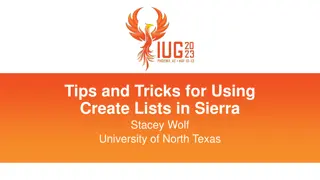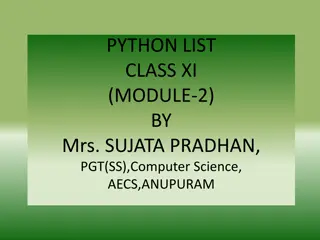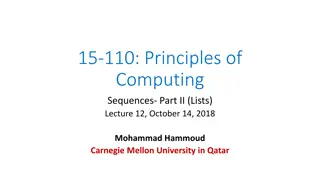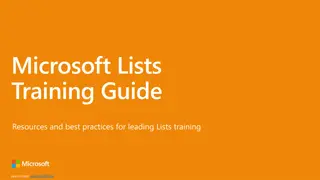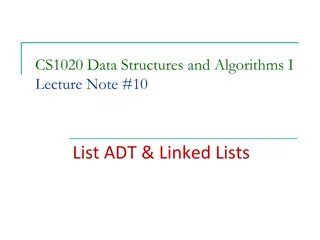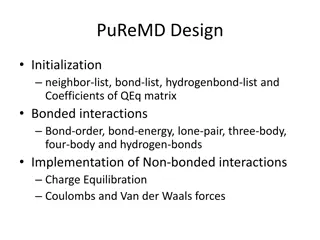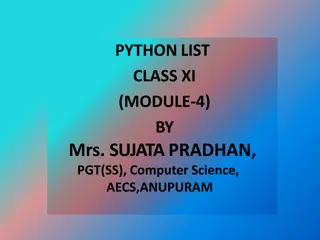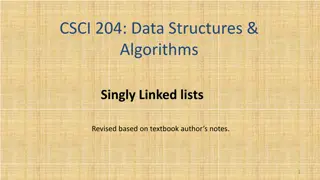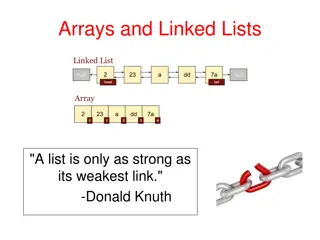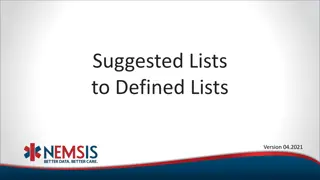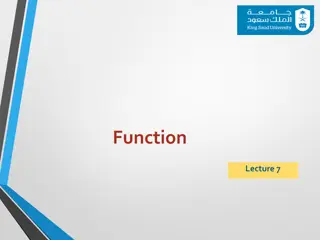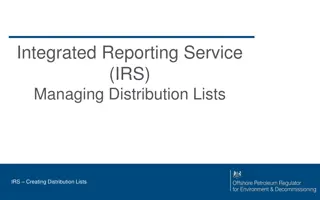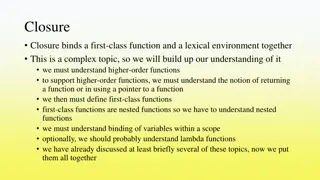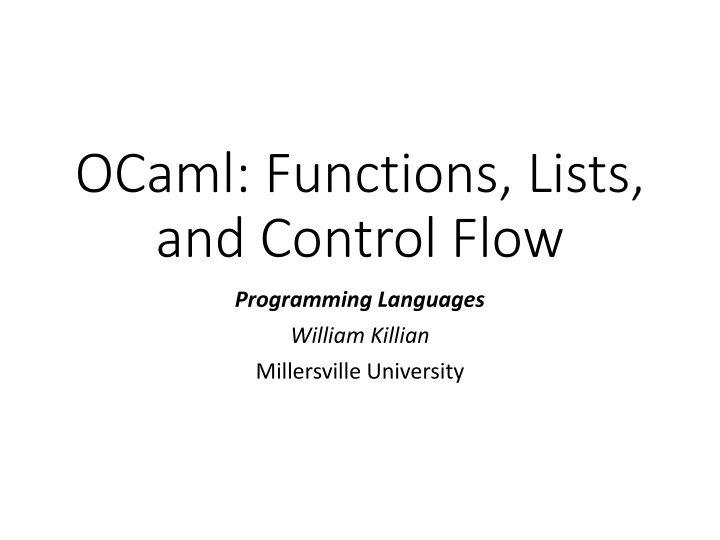
OCaml Functions, Lists, and Control Flow Programming
Explore the fundamentals of OCaml, including functions, lists, and control flow. Learn how functions work in OCaml, from basic syntax to evaluation and partial function applications.
Download Presentation

Please find below an Image/Link to download the presentation.
The content on the website is provided AS IS for your information and personal use only. It may not be sold, licensed, or shared on other websites without obtaining consent from the author. If you encounter any issues during the download, it is possible that the publisher has removed the file from their server.
You are allowed to download the files provided on this website for personal or commercial use, subject to the condition that they are used lawfully. All files are the property of their respective owners.
The content on the website is provided AS IS for your information and personal use only. It may not be sold, licensed, or shared on other websites without obtaining consent from the author.
E N D
Presentation Transcript
OCaml: Functions, Lists, and Control Flow Programming Languages William Killian Millersville University
Functions The basic building-block of Ocaml Functions are expressions Functions have a type Functions (when fully invoked) yield a value Looks like a binding at first let x = 4;; let my_function x y = (* hidden *);;
Function Syntax Abbreviated: let fn x = (* code that uses x *) ;; Full: let fn = fun x -> (* code that uses x *) ;;
Function Syntax (two params) Abbreviated: let fn x y = (* code that uses x and y *) ;; Full: let fn = fun x -> fun y -> (* code that uses x and y *) ;;
Function Syntax (three params) Abbreviated: let fn x y z = (* code that uses x, y, and z *) ;; Full: let fn = fun x -> fun y -> fun z -> (* code that uses x, y, and z *) ;;
Function Evaluation let add2 x = 2 + x ;; add2 3 = 2 + 3 = 5
Function Evaluation (two params) let add x y = x + y ;; add 2 3 = 2 + 3 = 5
Partial Function Evaluation let add x y = x + y ;; let add2 = add 2 ;;
Partial Function Evaluation let add = fun x -> fun y -> x + y ;; let add2 = add 2 (* substitute 2 for x *) ;;
Partial Function Evaluation let add = fun x -> fun y -> x + y ;; let add2 = fun x -> fun y -> 2 + y ;;
Partial Function Evaluation let add = fun x -> fun y -> x + y ;; let add2 = fun y -> 2 + y ;;
Aside: Local Binding Bindings are applied at the global scope If we want a local binding that is temporarily used, we have a special syntax let in You can view this like a local variable let x = 4;; let x4 = let x2 = x * x in x2 * x2;; (* x2 not visible *)
Basic Control Flow In Programming 1 we learn about conditionals Basic constructs: if, else Ideas: Boolean expression let even_odd val = let is_even = val mod 2 = 0 in if is_even then "even" else "odd"
Basic Control Flow: Operators = != > < >= <= equality Inequality Greater Less Greater or equal Less or equal (can also use <>) NOTE: always must compare the same types All comparisons return a bool (true or false)
Recursive Functions Almost the same syntax Just need to tell OCaml a function is recursive let rec sumToN n = if n = 0 then 0 else n + sumToN (n - 1) ;;
Lists a' list Immutable (cannot be changed) Finite sequence of elements All elements must be the same type Empty list: [] List with three ints: [1; 2; 3] 1::2::3::[] 1::(2::(3::([])))
List Operators Cons :: Prepend an element to a list Does not modify the original list The original list can be empty The types must match module List let cons (val : a') (lst : a' list) = val::lst
List Operators Append @ Appends a list to the end of another list Does not modify either original list The types must match [1] @ [2; 3; 4] [1; 2] @ [3] [1; 2; 3; 4] [1; 2; 3] let (@) (l1 : a' list) (l2 : a' list) = (* implementation hidden *)
List Operators hd Extract the first element of the list Returns the left side of the cons List.hd [1; 2; 3] 1 module List let hd (lst : a' list) = match lst with | hd::_ -> hd | [] -> raise (Failure "empty list")
List Operators tl Extract the remaining elements of the list Returns the right side of the cons List.tl [1; 2; 3] [2; 3] module List let tl (lst : a' list) = match lst with | _::tl -> tl | [] -> raise (Failure "empty list")
Advanced Control Flow What was match ... with ? Language feature called pattern matching SUPER POWERFUL OCaml will try to do a lot for you If the value matches -> use it If the type matches -> use it If it would be a well-formed expression -> use it
Basic Pattern Matching if expr then valT else valF Can be rewritten as: match expr with | true -> valT | false -> valF Or: match expr with | true -> valT | _ -> valF
List Pattern Matching Let s revisit List.hd let hd (lst : a' list) = match lst with (* we can extract the front *) | hd::_ -> hd (* have an empty list bad *) | [] -> raise (Failure "empty list")
Value Pattern Matching Print out a number. But for multiples of three it should output Fizz instead of the number and for the multiples of five output Buzz . For numbers which are multiples of both three and five output FizzBuzz . let fizzbuzz n = match (n mod 3, n mod 5) with | (0, 0) -> "FizzBuzz" | (0, _) -> "Fizz" | (_, 0) -> "Buzz | _ -> string_of_int n
Value Pattern Matching Print out a number. But for multiples of three it should output Fizz instead of the number and for the multiples of five output Buzz . For numbers which are multiples of both three and five output FizzBuzz . let fizzbuzz n = match (n mod 3, n mod 5) with | (0, 0) -> "FizzBuzz" | (0, _) -> "Fizz" | (_, 0) -> "Buzz | _ -> string_of_int n

